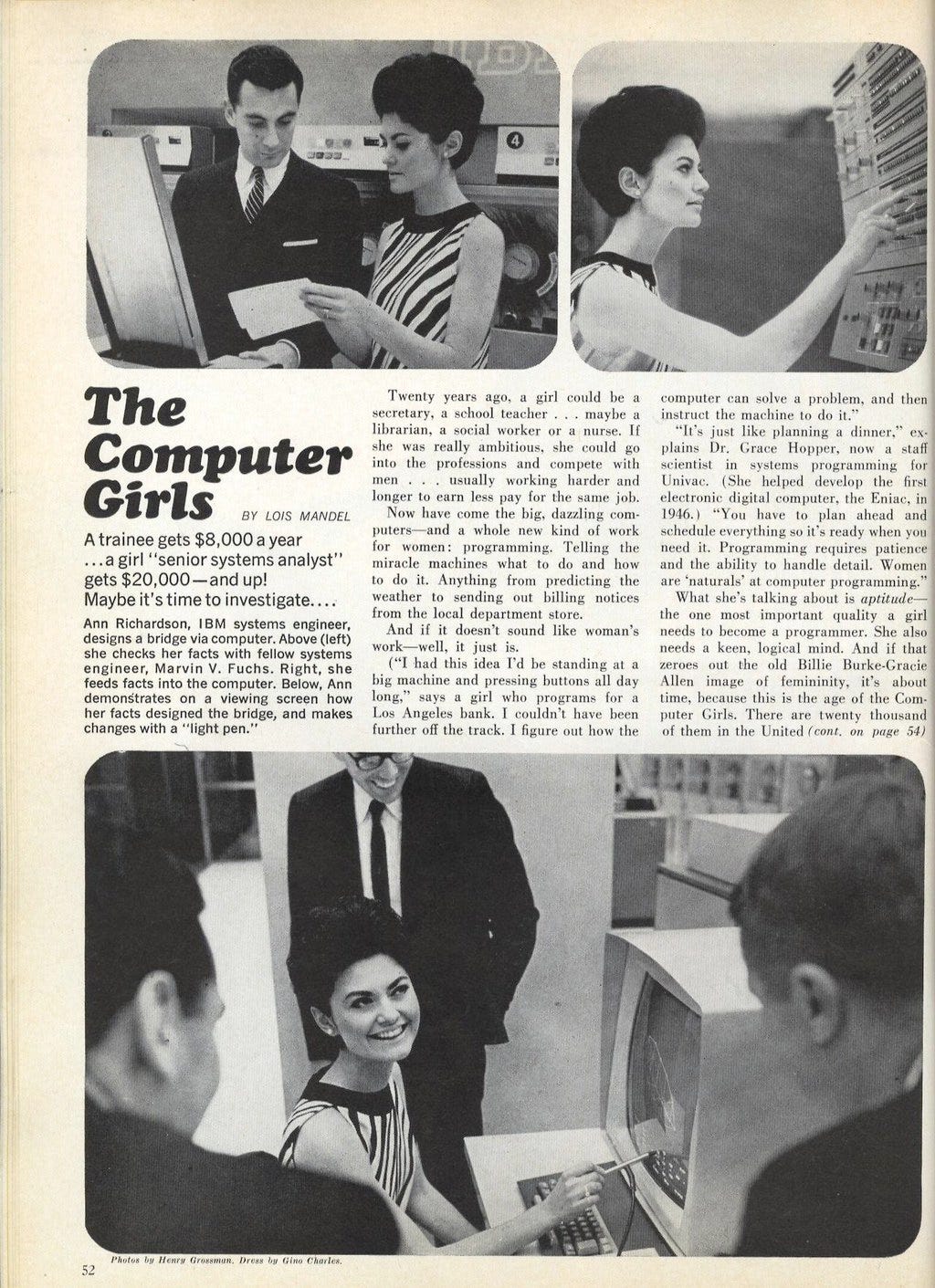Ada Lovelace was the first person to publish an
algorithm intended to be executed by the first modern computer, the
Analytical Engine created by
Charles Babbage. Because of this, she is often regarded as the first computer
programmer,
[3][4][5] though this statement, as well as others about Ada's mathematical abilities and involvement with Babbage's project,
has been criticized.
During the 1800s,
Edward Charles Pickering hired several women to work for him at
Harvard. These women, called "Pickering's harem" at the time and also as the
Harvard Computers, performed clerical work that the male employees and scholars considered to be tedious work at a fraction of the cost to hire a man.
[6]
Grace Hopper was the first person to create a
compiler for a
programming language and one of the first programmers of the
Mark I computer, an electro-mechanical computer based on
Analytical Engine. The regularly working programmers of the
ENIAC computer in 1944, were six female mathematicians;
Marlyn Meltzer,
Betty Holberton,
Kathleen Antonelli,
Ruth Teitelbaum,
Jean Bartik, and
Frances Spence.
Adele Goldstine was one of the teachers and trainers of the six original programmers of the ENIAC computer. Adele died of cancer in 1964 at the age of 44.
Adele Goldberg was one of the seven programmers that developed
Smalltalk in the 1970s, one of the first
object-oriented programming languages, the base of the current
graphic user interface, that has its roots in the 1968
The Mother of All Demos by
Douglas Engelbart. Smalltalk was later used by Apple to launch
Apple Lisa in 1983, the first personal computer with a GUI, and one year later its
Macintosh. Windows 1.0, based on the same principles, was launched a few months later in 1985.

